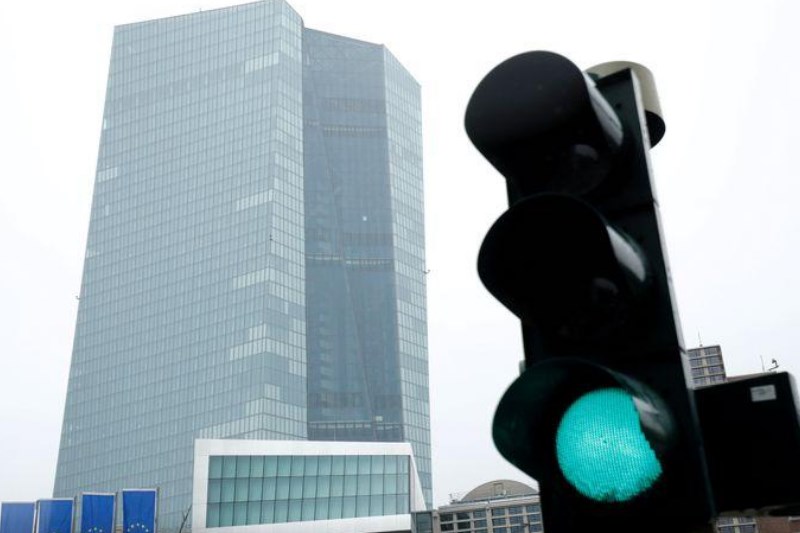(Bloomberg) -- The European Central Bank pledged to ramp up its buying of government debt in coming months in a bid to a contain rising bond yields that threaten to derail the region’s economic recovery.
“The Governing Council expects purchases under the PEPP over the next quarter to be conducted at a significantly higher pace than during the first months of this year,” President Christine Lagarde and her colleagues said in a statement on Thursday. “The Governing Council will purchase flexibly according to market conditions and with a view to preventing a tightening of financing conditions.”
European bonds rallied, with Italy leading gains. Ten-year yields on the nation’s debt fell six basis points to 0.61%. Lagarde will hold a press conference at 2:30 p.m. Frankfurt time to explain the decision in full.
Follow the press conference on our live blog
While policy makers are now committing to front load purchases, they still kept the overall size of the 1.85 trillion-euro ($2.2 trillion) pandemic bond-buying program unchanged. Officials held the deposit rate at -0.5%, and will continue providing long-term loans to banks.
The fresh language was added after a jump in global government bond yields driven partly by the speedy U.S. economic recovery from the pandemic, which has boosted inflation expectations. That’s a risk to the euro zone, as those yields are used as a reference for the cost of bank loans to companies and households.
What Bloomberg Economics Says...
“The ECB has taken action to address rising bond yields, saying asset purchases will be stepped up in the near term. That’s a relief after data at the start of the week showed the ECB had not intervened.”
-Maeva Cousin. To read her report, click here
German 10-year bond yields, seen as the benchmark for Europe, have climbed around 20 basis points since the start of February. Still, the premium demanded by investors to hold Italian debt over Germany, a key risk gauge for the region, has fallen by a similar amount over that period, alleviating one key source of concern for the ECB.
Lagarde will present updated staff economic projections, which will highlight the uncertain path to recovery.
The forecasts will be cautious, envisaging no sustained jump in inflation and assuming that hoarded savings won’t be depleted in a sudden consumption boom when lockdown restrictions ease, according to officials with knowledge of the matter.
While the U.S. has made rapid progress in vaccinations and has passed a $1.9 trillion fiscal stimulus package, the euro area has been slower with inoculations and its spending plans are smaller. Extended virus lockdowns mean the economy is on course to contract again this quarter.
Central banks from Australia to the U.K. have tamped down talk of rising interest rates and inflation, focusing instead on the risks.
The ECB’s response has left investors unimpressed so far though, with emergency asset purchases barely picking up over the past two weeks. Comments by officials have varied, with some saying the moves simply reflect optimism about the outlook and others fretting that the euro zone recovery is under threat.
Lagarde may also offer more details on what indicators officials are looking at when they judge financial conditions. At its previous policy meeting, the Governing Council told staff to report back in March with proposals.
The president is likely to face questions on the ECB’s strategy review, which is set to publish results this year on issues including the inflation target and climate change. On Wednesday, Greenpeace activists landed a paraglider on the roof of part of the central bank in a protest denouncing its support of heavy polluters.
©2021 Bloomberg L.P.
